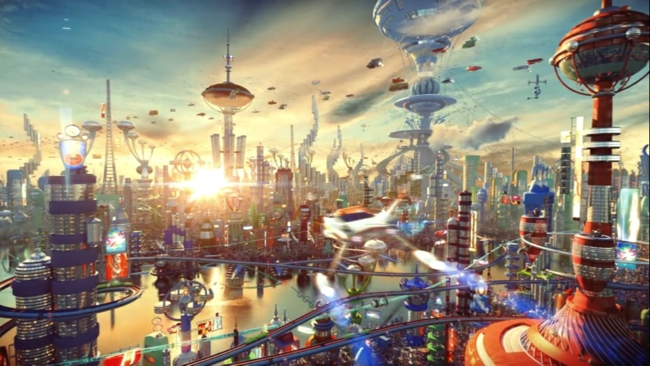
Flying cars, visiting Mars, medical revelations, mass surveillance and super machines taking over the world, represent some of the things we might imagine the world to be like in the future. It is a topic that has fascinated many, one of them being author George Orwell (1903-1950) who wrote Nineteen Eighty-Four, a book that paints a rather chilling picture of a future society. The topic continues to fascinate us, and with the aim of getting to know a few individuals’ thoughts and ideas about the role of technology today and in the future, 11 Norwegian women and men between the age of 15-85 answered an anonymous survey. The results of the survey show that these Norwegians believe in an improved world due to technology, but at the same time express a sense of fear of the unknown.
In this way, technology and technological innovations are understood as being both part of the solution and part of the problem.
Technology as a solution
Everyday life:
“Technology is the future. Therefore it is important to stay updated.”
When we try to think about the future and what that entails, our answer is influenced by the way we live our lives today and how we lived earlier. In this way, the past, present and future are interlinked. For instance, one woman under 20 years old envisions her everyday life to be filled with “flying cars” and being able to “fly to planet Mars”. A female musician between the age of 20-30 looks forward to innovative technology that will make her everyday life and career much easier, stating that she hopes to “gain access to a universal USB or a universal charger for all devices”.
Human and societal change:
“I am excited for the development of innovative technology that contributes to something positive like saving human lives.»
Some of the Norwegian participants focus more on potential human and societal improvements with the use of future technology. The ideas range from saving lives through enhancing medicine and medical procedures, to using technology to contribute toward the green transition. A man in his 20s imagines a new age with the future version of the internet, also known as Web3. There is a lot of hype around Web3 and its aim of decentralizing the internet by having it “built, powered and owned by people”, as opposed to having the internet owned by a few tech companies like it is today (Cited in CBInsights, 2022).

Technology as a problem
All-consuming and impersonal:
“Technology is just something one has to live with, but I hope that we in the future can go back to disconnecting more from the internet.”
The top concerns expressed seems to be that technology is all-consuming and makes the world increasingly impersonal. Two participants over 80 years are particularly afraid that, based on how difficult it is for them to stay updated now, they will not be able to keep up with the rapid technological advancements of the future. This included important chores like paying bills or logging into their online bank. They both express a feeling of powerlessness about technology today and in the future.
Future generations:
“I think it is scary that children will have to know technology from a young age. And I do not look forward to having my own children not being able to socialize without technology, that their ability to fantasize about things will disappear.”
While the younger groups of participants share similar worries with the two older participants, they do not express the same feeling of being powerless. Some of the participants in the 20s state they might join a digital counterculture by removing themselves from digital platforms, and action reasoned as necessary to protect future generations.
Security and privacy- unknown concerns?
Security and privacy are not raised as concerns for the participants, except from one person who briefly talks about the fear of a mass surveillance society. The report (2019) by Dag Slettemeås, which is part of the RELINK project, states that homes have become a “hub” for digital devices, and raises the point that consumers as well as homes are considered a “weak link” in the digital chain. To read more about this topic, you might also want to have a look at this article (2022) by Paupini, Van der Zeeuw and Teigen.

While this survey is small and by no means representative, it offers personalized insight into how a few (Norwegian) individuals envision the future, representing a topic that continues to excite, worry and fascinate us.

One thought on “How do we envision the future?”
This is so interesting! A little glimps of peoples thoughts on the matter! Great fun!